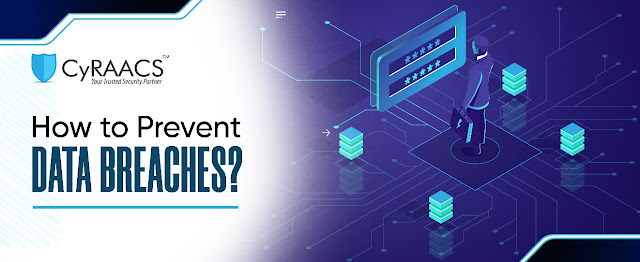How to Prevent Data Breaches?
If you're a tech or SaaS founder, the news of a data breach is probably enough to send chills down your spine.
A data breach can do some serious damage to your business -
it can make you lose all of your credibility and reputation in an instant. It's
brutal.
Data breaches steal 69 data records every second:
If you're not careful, you could be the next target on a
hacker's list. Make sure you have a solid system in place to prevent data
breaches.
By taking the right steps, you can protect your business
from data breaches and keep your customer's information safe.
There are a few key steps you can take to help prevent data
breaches and keep your business safe. By taking these precautions, you can
greatly reduce the chances of a data breach occurring.
Some of the steps you can take to help protect your business include:
-Educating your employees about data security and best
practices
-Implementing strong security measures, like firewalls and
encryption
-Regularly backing up your data
-Monitoring your network for signs of unusual activity
By taking these steps, you can help keep your business safe
from data breaches.
No business is immune to data breaches, and the consequences
can be disastrous. In this blog, we'll discuss how you can prepare for a data
breach and take steps to avoid it effectively. By taking these precautions, you
can help save your business and keep your data intact.
What is a data breach?
A data breach is when someone steals information from a
system without the permission of the system's administrator or owner. It's
similar to stealing someone's wallet.
Cybercriminals usually carry out data breaches to access
your most sensitive information and then demand ransomware in exchange for the
data. The stolen data could be anything – from credit card credentials to
customer information. This scenario has more gravity since your entire business
is at stake here.
There are many ways that cybercriminals can initiate a breach, but most of them involve malware or hacking attacks. These criminals will target the weakest or most vulnerable part of your network in order to exploit it and get into your system. By being aware of this, you can help to protect your network by making sure that all of your systems are up to date and secure.
How does a data breach impact your business?
In today's privacy-driven world, a data breach severs the
trust between your customers and your brand.
Not only can a data breach result in substantial financial
losses, but it can also damage your reputation and brand value.
In short, it's almost impossible for small businesses to
rebuild their business from the ground up after a data breach.
Data breaches can happen to anyone - even your customers.
And when they do, it can cause them to suffer financial losses. That's why it's
important to have a plan in place to protect your customers' data.
How to Avoid a Data Breach?
1-Create an IT security policy:
Having a well-defined IT security policy is key to reducing
the chances of a data breach. Many times, mishandling data can lead to
vulnerabilities, which in turn helps cybercriminals hack into your system. An
IT security policy outlines how your organization handles different kinds of
information. This includes specifying protocols for handling confidential
information, what constitutes a data breach, and how to report a breach. By
having a clear IT security policy in place, you can help protect your
organization from cybercrime.
An IT security policy is important because it helps to
protect the confidentiality and security of your data. It can also help with
compliance, external auditing, and interactions with third parties. Make sure
that your policy complies with the laws in your country.
2. Regular risk assessments:
A deserted house is an easy target for burglars because it
provides them with an opportunity to break in without anyone being around to
stop them. In the same way, a poorly assessed system is more likely to be
breached because it has not been properly evaluated for weaknesses. To keep
your system secure, you must regularly assess risks and ensure that your
network has no vulnerabilities.
3. Earn an SSL certificate:
An SSL certificate is a big trust signal for your website.
It increases your website's protection by confirming its identity and enables
users to engage with you safely. When users see that your website has an SSL
certificate, they will be more likely to trust it and do business with you.
By choosing to add an SSL certificate to your website, you
are increasing the confidence of your users as well as protecting any sensitive
information. This, in turn, helps to build trust among your potential customers
- which is essential if you want to do business with them. Furthermore, having
an SSL certificate is one of the primary prerequisites for being able to accept
payments through your website.
4. Monitor your cloud assets:
As more companies are moving towards using cloud storage and
processing, the locations where these resources are stored become more
abstract and centralized. Although this can make the overall cost of IT
services cheaper and easier to manage, it also creates new risks that need to
be taken into account. To reduce the likelihood of risks associated with cloud
resources, it's important to scan everything - from databases to workloads. By
doing so, you can catch any potential problems that might arise so as to avoid
any major issues down the line.




Comments
Post a Comment